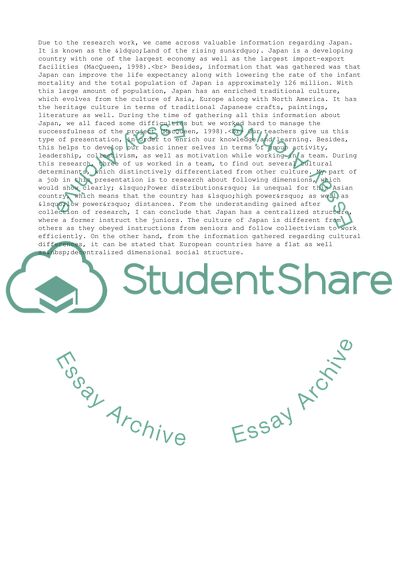Cite this document
(Self Reflection on Culture and Communication Assignment, n.d.)
Self Reflection on Culture and Communication Assignment. Retrieved from https://studentshare.org/management/1691021-self-reflection-on-culture-and-communication
Self Reflection on Culture and Communication Assignment. Retrieved from https://studentshare.org/management/1691021-self-reflection-on-culture-and-communication
(Self Reflection on Culture and Communication Assignment)
Self Reflection on Culture and Communication Assignment. https://studentshare.org/management/1691021-self-reflection-on-culture-and-communication.
Self Reflection on Culture and Communication Assignment. https://studentshare.org/management/1691021-self-reflection-on-culture-and-communication.
“Self Reflection on Culture and Communication Assignment”, n.d. https://studentshare.org/management/1691021-self-reflection-on-culture-and-communication.


